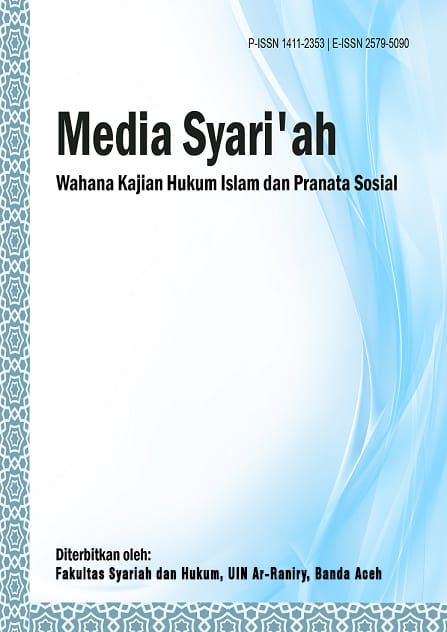References
Abdurrahman, Asjmuni, 1976. Qaidah-qaidah Fiqhiyah (Qawa’id Fiqhiyah), Jakarta: Bulan Bintang.
Al-Maraghi, 1969. Tafsir al-maraghi, Mesir: Musthafa al-Bab al-Halaby.
Al-Qurthuby, t.th. Jami’ li Ahkam Qur’an, Al-Qahirah: Darel Kutub Al-Mishriyah.
As-Shabuni, Muhammad Ali, 1980. Rawȃi’ Al-Bayȃn Tafsȋr Ȃyȃt Al-Ahkȃm min Al-Qur’ȃn, Vol. I, Damsyiq: Maktabah Al-Ghazali.
As-suyuti, Abruhhaman, 1403 H. Al-Asybah wa An-Nazair, Beirut: Dar Al-Kutub Al-‘Ilmiyah.
at-Thabari, Ibn Jarir, 2000. Jami’ al-Bayan fi Ta’wil Al-Quran, t.tp: Muassah Ar-Risalah.
Berkatullah, Abdul Halim dan Teguh Prasetyo, 2006. Hukum Islam Menjawab Tantangan Zaman yang Terus Berkembang, Yogyakarta: Pustaka Pelajar.
Direktorat Pembinaan Badan Peradilan Agama Islam, 1985. Direktorat Jenderal Pembinaan Kelembagan Islam Departemen Agama, Kenang-kenangan Seabad Peradilan Agama di Indonesia, Jakarta.
Kamal, Zainal dan Musda Mulia, 2003. Penafsiran Baru Islam Atas Pernikahan Antar Agama, Jakarta: Yayasan Wakaf Paramadina.
Keputusan Muktamar Tarjih Muhammadiyah ke XXII, 1989, Malang Jawa Timur
Majlis Ulama Indonesia, 2011, Himpunan Fatwa MUI Sejak 1975, Jakarta.
Ridha, Rasyid, 1367 H. Tafisr Al-Manar, Kairo: Dar Al-Manar.
Saleh, K. Wantjik, 1992. Hukum Perkawinan Indonesia, Jakarta: Ghalia.
Sodik, Mochamad, Mencairkan Kebekuan Fiqh: Membaca KHI dan CLD KHI bersama Musda Mulia, Jurnal Ilmu Syariah Asy-Syir’ah, Vol. 38, No.II, 2004
Syarifudin, Amir, 2006. Hukum Perkawinan Islam di Indonesia Antara Fiqh Munakahat dan Undang-undang Perkawinan, Bogor: Kencana.
, 2007. Garis-garis besar Fiqh, Bogor: Kencana.
Trisnaningsih, Mudiarti, 2007. Relevansi Kepastian Hukum dalam Mengatur Perkawinan Beda Agama di Indonesia, Bandung: Penerbit Utomo.
Zuhdi, Masjfuk, 1994. Masail Fiqhiyah, Jakarta: Gunung Agung.
 Skip to main content
Skip to main content



.png)


.png)
.png)
.png)







